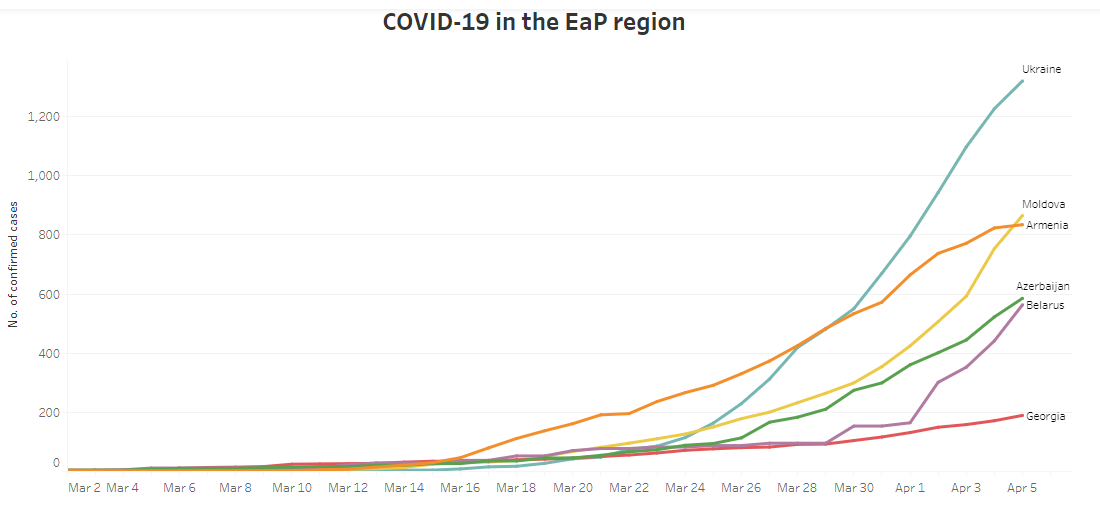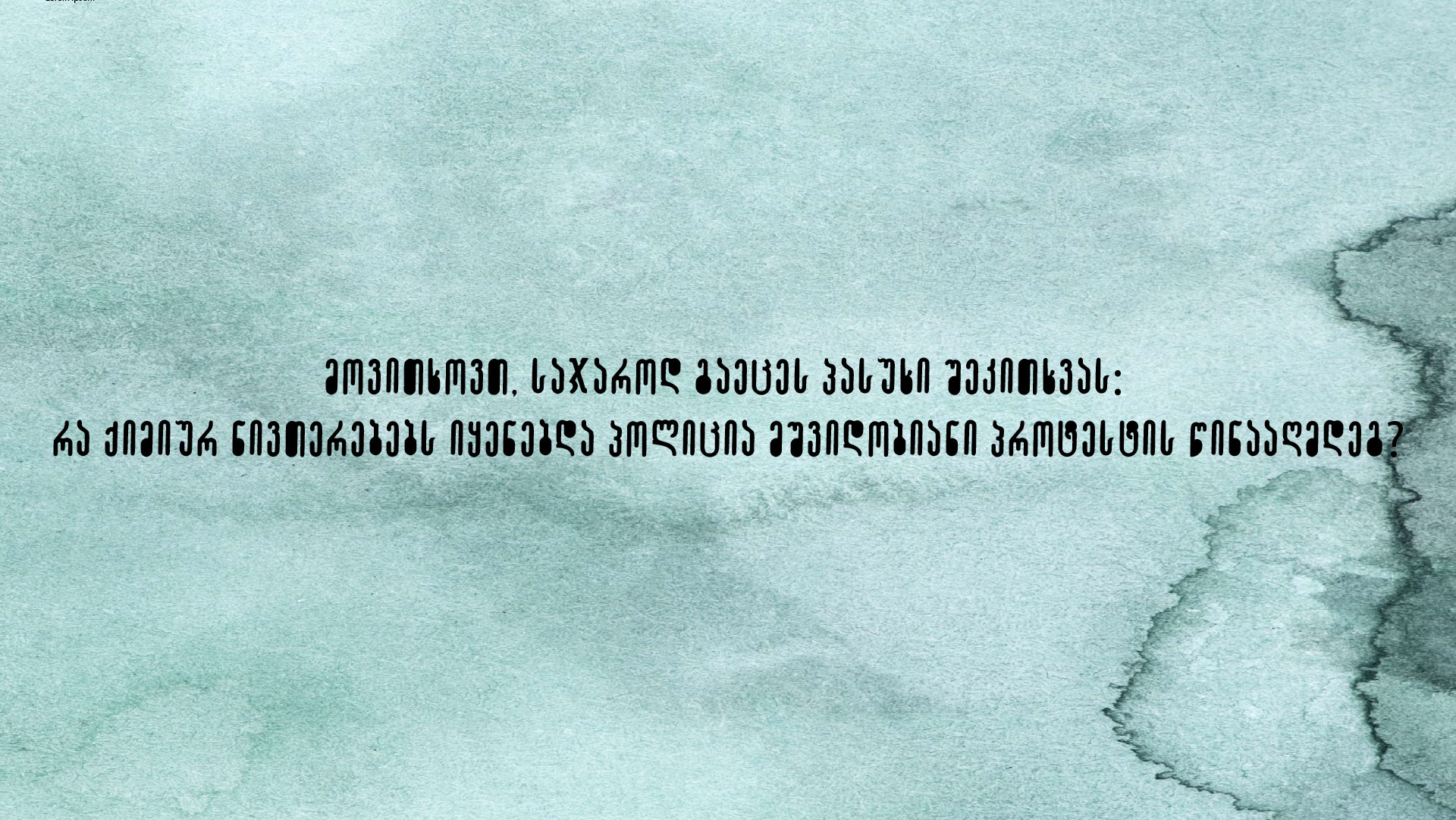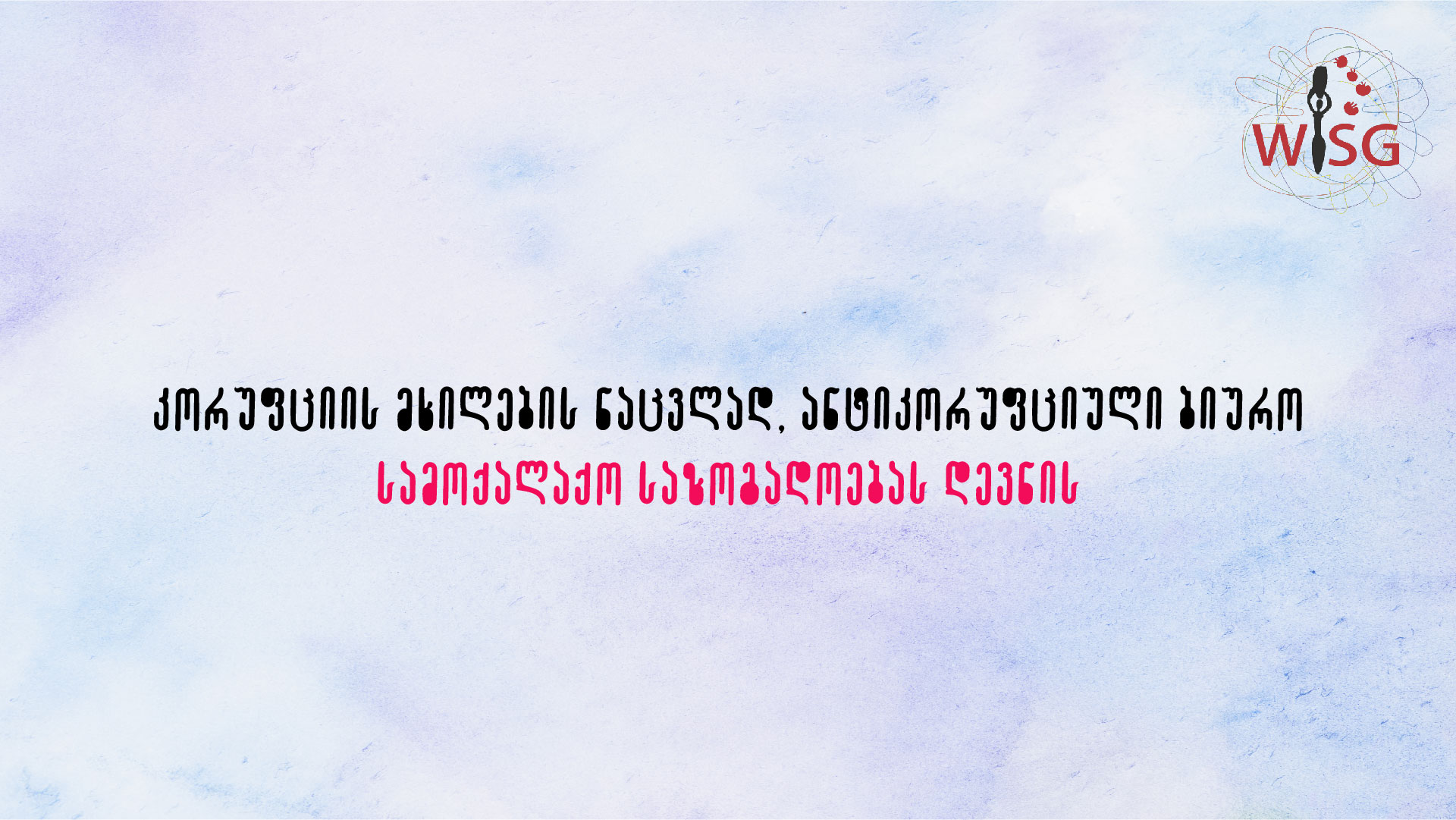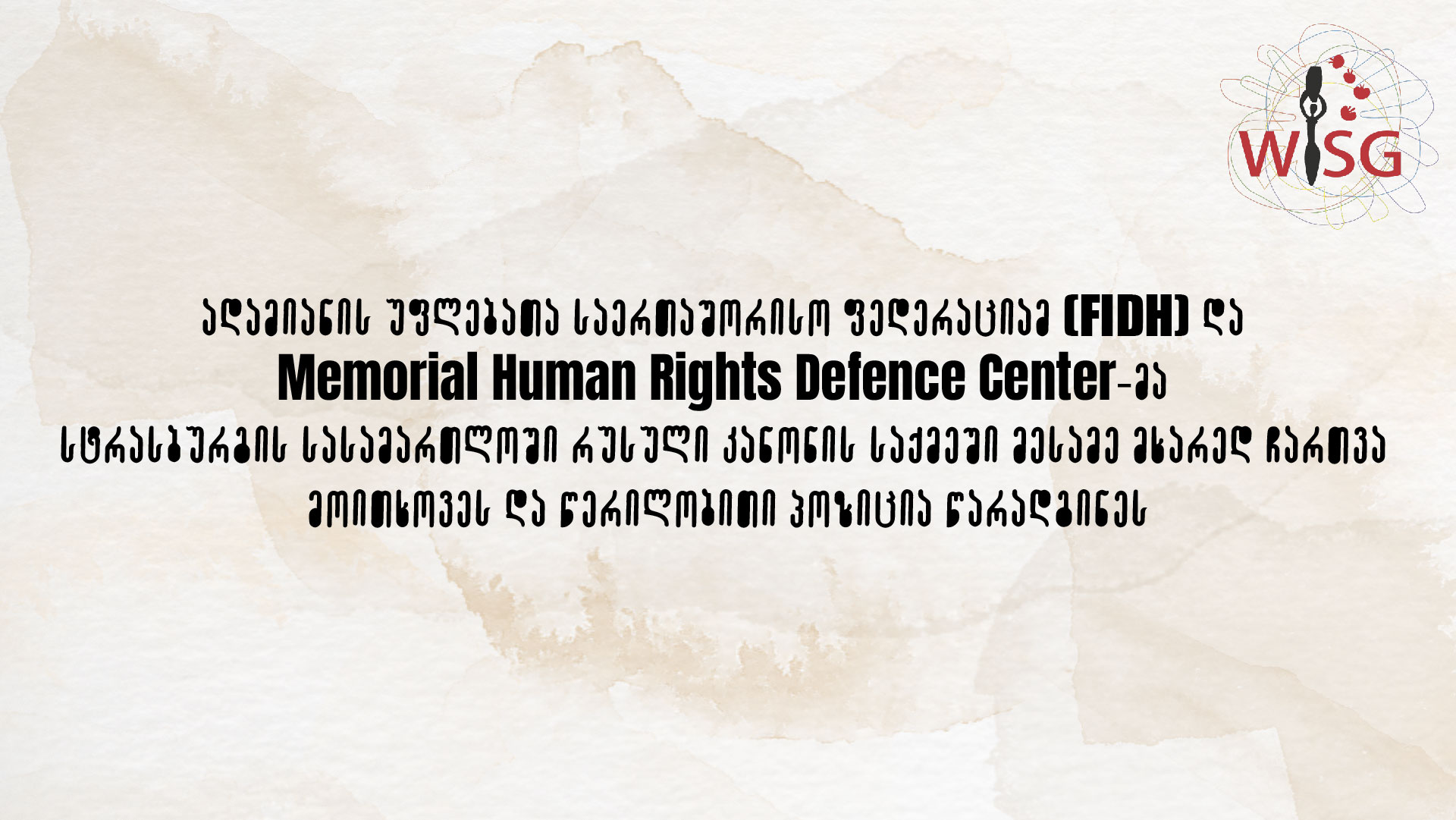As the Covid-19 pandemic is advancing, posing complex humanitarian, human rights and political challenges, an active mobilization of the human rights activists around the globe is taking place to analyze the impact of this crisis (magnified by pre-existing inequalities) on different disadvantaged communities, and outline mitigation strategies, actions and recommendations. Not unlike our colleagues around the world, we, the member organizations of the Eastern European Coalition for LGBT+ Equality are also adjusting our work to the new reality, monitoring the needs and problems emerging in our communities and striving to find the best solutions.

Most of the states in our region are undertaking strict measures to combat the spread of the Covid-19 virus. At the moment state of emergency with strict limitations on public gatherings has been introduced in Georgia, Ukraine, Armenia and Moldova, special quarantine measures are in place in Azerbaijan, while Russia is introducing gradual lockdown in different regions and big cities. Since our economies are neither strong nor stable, and these (albeit necessary) measures lead to suspension of work life in sectors where LGBT+ people are overrepresented, the risk of falling (back) into poverty and vulnerability to violence and discrimination (including due to higher level of surveillance and police and military presence) increase significantly.
Members of the LGBT+ community who are employed in the trade and service fields or hold blue collar jobs (often with daily or weekly wages) are now facing suspension or loss of employment, and therewith increased risk of homelessness. This problem disproportionately affects members of the trans community, which, due to lack of swift, transparent and accessible legal gender recognition procedures across the region, are often hired without proper documentation and thus lack protection on the labor market. Trans and gay sex workers, while exposed to both health and economic risks, are also under a higher risk of increased harassment and violence on the part of the law enforcement agencies (already biased against these groups), that might become overzealous in raiding cruising areas, under the pretext of enforcing curfews and other limitations on public assembly. Needless to say, that LGBT+ community members that are already homeless find themselves in an especially precarious position with drastically decreased chances of finding even the short term employment and temporary housing solutions.
Given these circumstances, calls for help received by our organizations in the course of the past weeks, revolve predominantly around assistance in provision of food, hygiene products and shelter. Lack of unrestricted funding makes it so, that civil society organizations cannot fully respond to these needs and have to rely on fundraising among other community members and allies, whose ability to make individual donations, is also severely compromised at the moment. Providing services available within our organizations online has become one of the ways of continuing to assist the community members, but this practice also revealed that because of the precarious financial situation, some members of the LGBT+ community lack adequate gadgets and/or proper access to internet, that would allow them to receive assistance, information and guidance online.
Lack of possibilities to maintain digital connection with community and professionals who could provide help is also connected to the fact that for many community members, home, as opposed to the organization offices and a few friendly bars — which are now shut down — does not represent a safe space. Many LGBT+ people (and particularly teenagers) with experience of domestic abuse are now confined to the same space as their abusers, and are not able to ask for and receive help. In other cases, LGBT+ people who are not out with their families, have limited possibilities to have therapy, receive consultations online, or take part in webinars, due to lack of privacy (whether it’s intentional or simply connected to the size of a housing unit shared by the family).
Self-isolation and quarantine may also mean lack of social (and emotional) support for LGBT+ people living with mental illnesses and disabilities, who are already faced with scarcity of relevant services and assistance. Senior members of the LGBT+ community, who, by virtue of their age, represent a primary risk group for Covid-19-related complications, areeven more isolated and alone, given the historic legal and social rejection of queer families. Many in this age group lack technology and/or skills in using online platforms to participate in webinars, receive counselling or reach out to organizations and activist groups for help in procuring basic provisions. Members of our communities living with HIV are also exposed to risks in the wake of the current pandemic. According to WHO, while at the moment there is no evidence that people living with HIV who are immunologically stable represent a risk group, it is also ’’unknown if the immunosuppression of HIV will put a person at greater risk for COVID-19, thus, until more is known, additional precautions for all people with advanced HIV or poorly controlled HIV, should be employed’’. An additional problem that the groups listed here, alongside with trans people who are undergoing medical transition, might eventually face is the interruption of supply chain, leading to shortage of vital medication connected to treatment and prevention of HIV, treatment of mental health conditions, hormone therapy etc.
Under these dire circumstances, the Coalition is especially concerned with the fact that some religious and anti-gender movement leaders decide to use Covid-19 in order to spread hatred against LGBT+ communities. While this tendency is relatively small in scale so far, heads of Ukrainian and Georgian Orthodox churches and a popular Moldovan parish priest (serving at one of the most attended churches) made recent statements claiming that Covid-19 is the God’s punishment for the spread of homosexuality and same-sex marriages (the Georgian statement also mentioned abortions). Such statements may lead to increased threats, cyberbullying and physical violence against activists and community members and in the long run (if this narrative persists) to the worsened public opinion. At the same time, the political tradition of posing hierarchies between the rights of different social groups, when it comes to dealing with society-wide crises, gives space to the legitimate fear that there will be increased lack of will to respond to cases of domestic violence and hate crimes.
While all of us are mobilizing to the best of our abilities to overcome this crisis, providing services, organizing volunteer groups, documenting violence and discrimination and looking for resources that could cover the needs of our communities, we are calling on the governments of our respective countries to:
- Take into consideration the call of the UN human rights experts reminding “that any emergency responses to the coronavirus must be proportionate, necessary and non-discriminatory” and adhere to international standards while introducing restrictions and enforcing them. Unfortunately, the increased level of surveillance and harsher crackdown on human rights and political activists under these critical circumstances is already becoming a reality, that represents a threat to the democratic development of the countries;
- Follow the call of the UN High Commissioner for Human Rights and put human rights at the center of Coronavirus Outbreak response. Make use of the expertise of human rights organizations working with the communities at risk, while making decisions on particular restrictions and their enforcement, availability of services and setting priorities about what services and what types of supplies (including medication) are essential;
- While designing programs of economic assistance on the national level, keep in mind all the groups that are particularly vulnerable to homelessness and unemployment. Make sure that housing, humanitarian aid and health services are available to those who already are homeless and/or below the poverty threshold and because of high levels of stigma and discrimination cannot access existing shelters and social assistance programs;
- Call on the fellow politicians and government officials to refrain from hate speech and discriminatory language, and condemn the statements and actions of the institutions and groups that spread hateful, unscientific messages and scapegoat marginalized social groups in these difficult times;
We call on the international community including donor organizations, diplomatic missions and relevant intergovernmental organizations to:
- Relentlessly remind our respective governments that the crises such as Covid-19 pandemic, regard all the groups in the society and thus, cannot be mitigated without active participation of all the groups affected disproportionately;
- Condemn any possible attempts of the governments to forego democracy and respect for human rights, in order to usurp power and introduce controversial reforms in times when public discussion and people’s ability to protest is minimized;
- Maintain active communication with the grantees/partners working with LGBT+ communities in the Eastern Partnership countries and Russia, to learn about the emerging needs and understand how to best direct resources to mitigate the effects of the crisis as well as reshape the ongoing programs some of which cannot be implemented under the current circumstances;
- Be aware that a significant share of the needs at the moment revolve around provision of services (legal, psychological, medical) and covering costs related to food, shelter, hygiene products and medication. Whenever you can, be flexible in your decisions on how to allocate the available funding, and when necessary lobby this with your back donors;
- We welcome the fact that the European Union is allocating funds to the Eastern Partnership countries to help deal with the effects of Covid-19, but are calling to emphasize importance of involving the civil society organizations working with the marginalized communities, while deciding on how to utilize these resources in finding solutions to the crisis;







